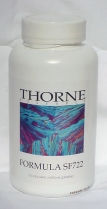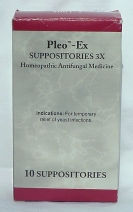|
Dear Friend,
I hope that this letter finds you well.
I enjoy hearing from you. Write to me with your comments and questions.
- Please log into your account to communicate with me. I can no longer respond to letters to drz@drz.org. Hundreds of unsolicited junk mails.
I make every attempt to answer your e-mails as soon as my busy schedule allows. At times this may take a few days. Please understand and be patient.
In this Issue:
Quotes for your life:
"Everyone thinks of changing the world, but no one thinks of changing himself."
Tolstoy
"Between the banks of pain and pleasure the river of life flows. It is only when the mind refuses to flow with life, and gets stuck at the banks, that it becomes a problem. "
Manual Hernandez
"If you shut your door to all errors, truth will be shut out."
Rabindranath Tagore
top of page
I get letters (bold and links added by Dr. Z)
"My son is nearly 16 years old. He has had acne since he was 13 years. Initially it was mild, but it became severe and "cystic" when he was 14.
For one year he was on antibiotics. Tetracycline seem to work for approximately 4 to 5 months. My son's face became worse again. He was then placed on Minocycline.
He was on and off on different antibiotics. Nothing seem to make any difference.
Then his doctor proposed that my son take Accutane. I was required to sign a release form. When I read the potential side effects, I finally said "NO MORE".
He has been off antibiotics for about 10 months. He has tried all kinds of topical creams and blue light treatment. His face looks terrible. I know this affects my son's self esteem. I really did not know where to turn or what else I could do to help him when a friend recommended Dr. Z. who had helped her son with his acne problems in some rather unconventional ways. Without much further thought I made an appointment.
The examination was very extensive. It made a lot of sense. Dr. Z explained in detail his findings: My son tested allergic to many, if not all, his favorite foods: waffle and syrup, box cereals, oatmeal squares, peanut butter and jelly on white bread, etc. He pointed out, that this type of "diet" was not useful for resolving his skin condition.
He suggested that due to his past heavy and prolonged antibiotic use, there was a high probability that his intestinal flora was quite damaged and that he most likely suffered from candida overgrowth. Dr. Z proposed a dramatic change in eating habits - no bread, no potatoes, no fruit, no fruit juice, no carbs… He recommended a set of supplements to help restore normal digestive function. He gave my son exercises to stimulate brain function. He adjusted him and started a series of Low Level Laser Therapy sessions over the affected parts of his face.
I went home in shock - as a mother how could I make this work? This required a complete rethinking of my shopping and cooking and lunch preparation.
We gave it a good try. I felt my son wanted to quit, but he also wanted to get rid of his terrible acne. Within 5 days there was a noticeable improvement. I have my shopping and cooking routine together now. To my amazement, my son is actually following all recommendations.
Two weeks have gone by. My son's skin looks 75 to 80% better. His moodiness is much improved. This already makes a tremendous difference in his social behavior. When we go shopping, my husband and I read every label in the grocery store before we buy anything. What an education!"
Denise, Auburn - California
top of page
What is Candida?
There are 81 strains of yeast organisms. Candida Albicans is the most common yeast found in the human intestinal tract. Normal intestinal bacterial flora keeps yeast in check. The overgrowth of Candida in the intestinal tract is affecting at least one third of the people in the United States.
If you're not feeling well or healthy, but not really sick, and standard lab tests don't show anything wrong, then you may be a candidate for systemic yeast overgrowth. Candidiasis is the medical term for the condition that occurs when common yeast in the intestines (Candida Albicans) has taken over.
Yeast does not contribute anything to your well being, but is always part of our the nonpathogenic bowel flora. Candida is harmless when it is in balance with the other organisms that live in the intestinal tract. If an imbalance occurs, Candida organisms can take over. They can also establish colonies on the skin, in the vagina, as well as in the colon.
Normal Intestinal Flora
The normal bowel flora is essential for human health. The stool for healthy human beings on Western diets consists of 85 percent microorganisms. In the colon the predominant organisms are spirochetes, in the ileum coccobacillus, in the small intestines lactobacillus and yeast. Function of the normal intestinal flora:
- Synthesize vitamins fatty acids
- Degrades toxins and xenobiotics
- Prevents colonization by pathogens
- Stimulates normal immune system response
- Degrades methyl mercury (most toxic form of mercury)
HCL and digestive enzymes are essential for maintaining a healthy intestinal flora. HCL and enzyme deficiency leads to incomplete protein and carbohydrate digestion. Instead of digestion there follows fermentation and putrefaction. This in turn leads to the overgrowth of pathological bacteria. The inadequate fiber content of in the Western died leads to constipation, putrefaction and increase of pathological organisms.
Candida and Antibiotics
Candida is an opportunistic organism. It can revert to a pathological fungal form. One of the worst offenders affecting gut flora, and the growth of Candida Albicans, is the repeated and prolonged use of broad-spectrum antibiotic drugs.
Children with recurrent ear infections often receive this type of treatment. Many of us "grown ups" have had multipe exposures of antibiotics during our life time.
Of all the antibiotics used in the United States, 55 percent are routinely fed to livestock. Nearly all the animals raised for food in this country receive antibiotics sometime during their lifetimes. This has caused resistant strains of bacteria, and probably yeast as well. There is no legislation that limits the use of antibiotics in animals used for food. This is the result of pressure from the beef and poultry producers. Also, the American meat-packing industry and the pharmaceutical industry work together and give support to each other. The entire European Economic Community has banned the routine feeding of antibiotics to livestock and will not import any meat that has had antibiotics added.
- Look for antibiotic-free meat and eggs now stocked at some health food stores and markets. You will usually pay more for these products, but it's worth it.
The most common and persistent problems reoccurring after a course of antibiotics are
- sinusitis
- hypersensitivity
- skin problems
- lower bowel grumbling
- poor digestion
- flatulence
- headaches
- fatigue
- and of course, "yeast infections".
Eating in a restaurant once a week can increase your risk of Candida proliferation because of the antibiotics found in animal fat and milk.
Evidence now points to allergies and Candida imbalance as a common cause of "ear infections" in infants and young children. Since the usual treatment for this condition is broad-spectrum antibiotics, symptoms may develop of oral thrush, clear nasal discharge, diarrhea, and diaper rash.
As a child grows, many other symptoms may occur and persist into adulthood. Children with recurrent "ear infections" tend to receive repeated and prolonged courses of broad-spectrum antibiotic drugs. These drugs cause alterations in gut flora including the proliferation of Candida, and tend to suppress the immune system. They also promote the absorption of food antigens that can play a major role in causing food allergies, hyperactivity, Attention Deficit Syndrome(ADD), and related behavior and learning problems.
Ample evidence in recent medical literature points to the fact that antibiotics are of little or no use in the treatment of "ear infections" in children.
top of page
Candida Supplements of the Month
 |
|
- A Thorne innovation, SF722 containing undecelenic acid in a base of olive oil, aids in the establishment of a healthy gut flora, and has been one of our best selling products for over a decade. It may be useful for individuals with intestinal overgrowth of Candida. Sensitivity to Candida can cause a myriad of symptoms such as chronic fatigue, allergies, hives, rashes, irritability, brain fog, depression, mood swings, itching.
|
| |
|
|
 |
- German Homeopathic Antifungal Medicine by Sanum for symptoms associated with Candida Albicans and other fungal/yeast infections. European health practitioners report that this remedy may be useful in intestinal overgrowth of Candida, mycosis, resistant skin infections of mouth, stomatitis, gingivitis, urogenital mycosis, vaginal yeast infections, prostatic hypertophy, gall bladder problems, colitis of fungal origin, allergies.
|
For a more comprehensive approach to the problem of candida overgrowth check Dr. Z's Clinical Pearls
You may want to complete Dr. Z's Self Evaluation to get a more in depth feedback on your current health issues as they relate to possible candida overgrowth, hypoglycemia and and/or digestive disturbances.
top of page
New additions to Dr. Z's Sanum/PleoSanum Homeopathics
1. Pleo San Acne
European practioners report that Sanukehl Acne 6X has shown useful as supportive therapy for
- Acne - especially Acne Conglomata - the more severe form of acne
- Rheumatoid Arthritis....
Read more...
2. Pleo San Pseu
European practioners report that Pleo San Pseu 6X has shown useful as supportive therapy for
- infectious and allergic dermatitis
- pruritus - itching skin
- angioneurotic edema -
recurring episodes of noninflammatory swelling of the skin, mucous membranes, viscera, and brain
- burns
- bronchial asthma
- sinusitis
- pharyngitis
- chronic bronchitis
- hay-fever .....
Read more...........
3. Pleo Spermus
German practioners report that Pleo Spermus has shown useful as supportive therapy for:
- inflammations such as trigeminal neuralgia
- iritis - inflammation of the iris
- allergic conjunctivitis
- diarrhea
- dysentry....
Read more...........
4. Pleo San Serra
European practioners report that Pleo San Serra 6X has shown useful as supportive therapy for nosocomial infection (aquired during hospital stay) such as
- urinary tract infections - kidney and bladder
- respiratory tract infections
- endocarditis
- osteomyelitis
- septicemia
- wound infections....
Read more........... top of page
In order to get a sense of our clinical work, please review some of our client comments.
|

